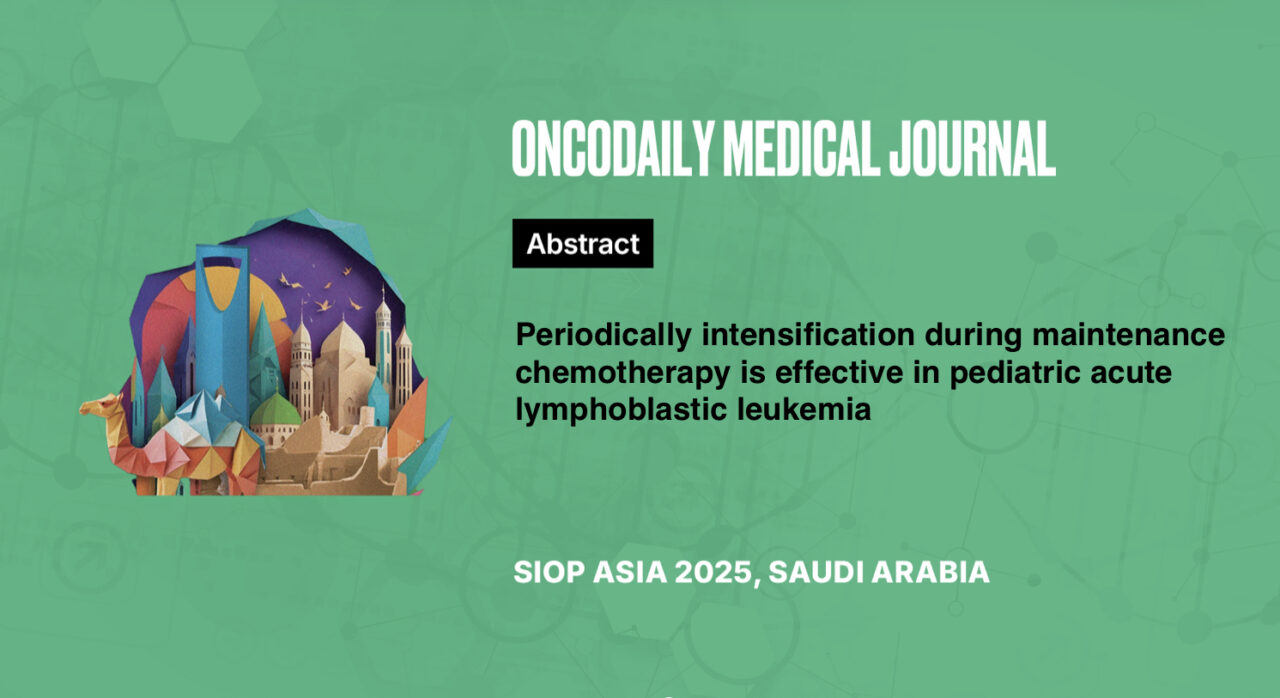Periodically intensification during maintenance chemotherapy is effective in pediatric acute lymphoblastic leukemia
Abstract
Introduction: Objective is to analyze the outcome of children with acute lymphoblastic leukemia (ALL) treated with the ZJCH-ALL-2019 protocol, which periodically intensifies during maintenance chemotherapy.
Methodology: Retrospective analysis of 751 children treated at the Department of Hematology-Oncology, the Children′s Hospital, Zhejiang University School of Medicine from October 2018 to May 2023.Kaplan-Meier and Log Rank tests assessed event-free survival (EFS), relapse-free survival (RFS), and overall survival (OS). Cox regression identified prognostic factors.
Results: During this period, 446 males and 305 females were enrolled, with median age of 4.9 years, including 76 T-ALL and 675 B-ALL cases. The overall 5-year EFS rate for this treatment regimen was 91.8±1.0%, and the 5-year OS rate was 95.8±0.7%. Five-year EFS rates for specific genetic fusions varied, with ETV6-RUNX1 at 98.3±1.0%, TCF3-PBX1 at 83.6±6.3%, BCR-ABL1 at 82.2±10.7%, SIL-TAL1 at 80.0±10.3%, and MLLr at 93.3±6.4%.
Additionally, 202 patients (26.89%) exhibited high hyperdiploidy, correlating with a 5-year EFS of 95.9±1.7%. Following risk stratification, the patient cohort was categorized as follows: 290 low-risk patients (38.61%) exhibited a 5-year EFS rate of 98.8±0.7%; 321 intermediate-risk patients (42.74%) had a 5-year EFS rate of 92.2±1.8%; and 140 high-risk patients (18.64%) presented with a 5-year EFS rate of 82.9±3.4%.
There was a total of 24 deaths without relapse, accounting for 3.1% of the patients, and 30 relapses, representing 3.9% of the cases. The Cox multivariate regression analysis showed that the white blood cell count at initial diagnosis, extramedullary lesions, minimal residual disease (MRD) level on day 15 of induction therapy, fusion genes, and immunophenotyping all had significant impacts on prognosis, with extramedullary lesions and the MRD level on day 15 of induction therapy being the most significant factors.
Conclusion: Periodically intensification during maintenance chemotherapy has shown remarkable effectiveness, with excellent outcome for pediatric B-ALL.





